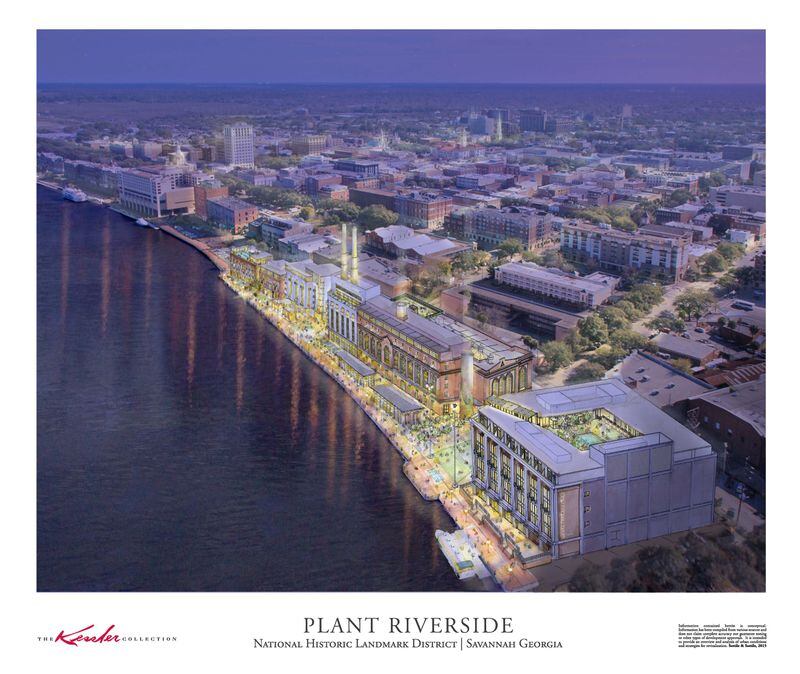When people complain about the $26 million in tax breaks Richard Kessler will get to rehab an old Georgia Power plant into a luxury hotel along the Savannah River, the developer points to the bevy of taxpayer-funded deals state officials have been quick to dole out for major projects across Georgia.
Credit: James Salzer
Credit: James Salzer
Some of them were supported by the same people now opposing the tax breaks Kessler will get.
Kessler, whose Plant Riverside District project is expected to create 700-800 jobs at two upscale hotels and shops, will get about $16 million in tax credits from the feds and another $10 million from the state, the Atlanta Journal-Constitution reported Sunday. Savannah lawmakers and lobbyists helped push a new law through the General Assembly this year raising the maximum state tax credits from $$300,000 to $10 million for Kessler's type of project.
"This is the largest private project ever done in the city of Savannah," Kessler said. "Just think what the state does for an industry creating 800 jobs."
Some of the jobs will be low-paying, but backers of the projects say the development will be in a high-poverty area in need of a boost.
The state, and local governments, have freely used incentives to create jobs in the past.
Calhoun-based Engineered Floors could get state incentives worth as much as $105.6 million over several years for opening two new factories in Northwest Georgia.
Incentives for Kia, which built a plant in West Point near the Alabama border, totaled more than $195,000 per job in grants, tax breaks and other perks, according to an AJC analysis. Baxter International got an incentive package valued at more than $140,000 per job when it picked the Social Circle area east of Atlanta for a new bioscience plant.
Lawmakers regularly back sales tax breaks on construction materials for new projects, from the Georgia Aquarium to entertainment venues in the north Atlanta suburbs. They also approve tax breaks aimed at helping certain industries, such as the sales tax break on parts for customers of Savannah-based luxury jet-maker Gulfstream.
Credit: James Salzer
Credit: James Salzer
And then there are the incentives for the owners of sports teams. The city of Atlanta is putting hundreds of millions of dollars into the new Falcons stadium, and the General Assembly approved borrowing $40 million for a new parking deck that will be used by Falcons fans. DeKalb County offered $12 million worth of incentives to lure a soccer training complex for the new Atlanta United soccer team. Both Atlanta United and the Atlanta Falcons are owned by Home Depot co-founder Arthur Blank.
In Cobb County, local taxpayers are committing more than $350 million to help fund a new Atlanta Braves stadium.
Unlike the stadiums, which seem to come and go every 20 or years in Atlanta, Kessler said his luxury hotel project could be around for generations.
"This is not a 30-year project. It should be a 100-year-project," he said. "It could be around for 300 years with the quality of this project. It will be remodeled by somebody in 100 years, but it will still be around."
Kessler, who already owns two of the swankiest hotels in Savannah, may not be done using the new historic tax credits.
"We are looking at other opportunities in Georgia, based on this law," he said.
About the Author








